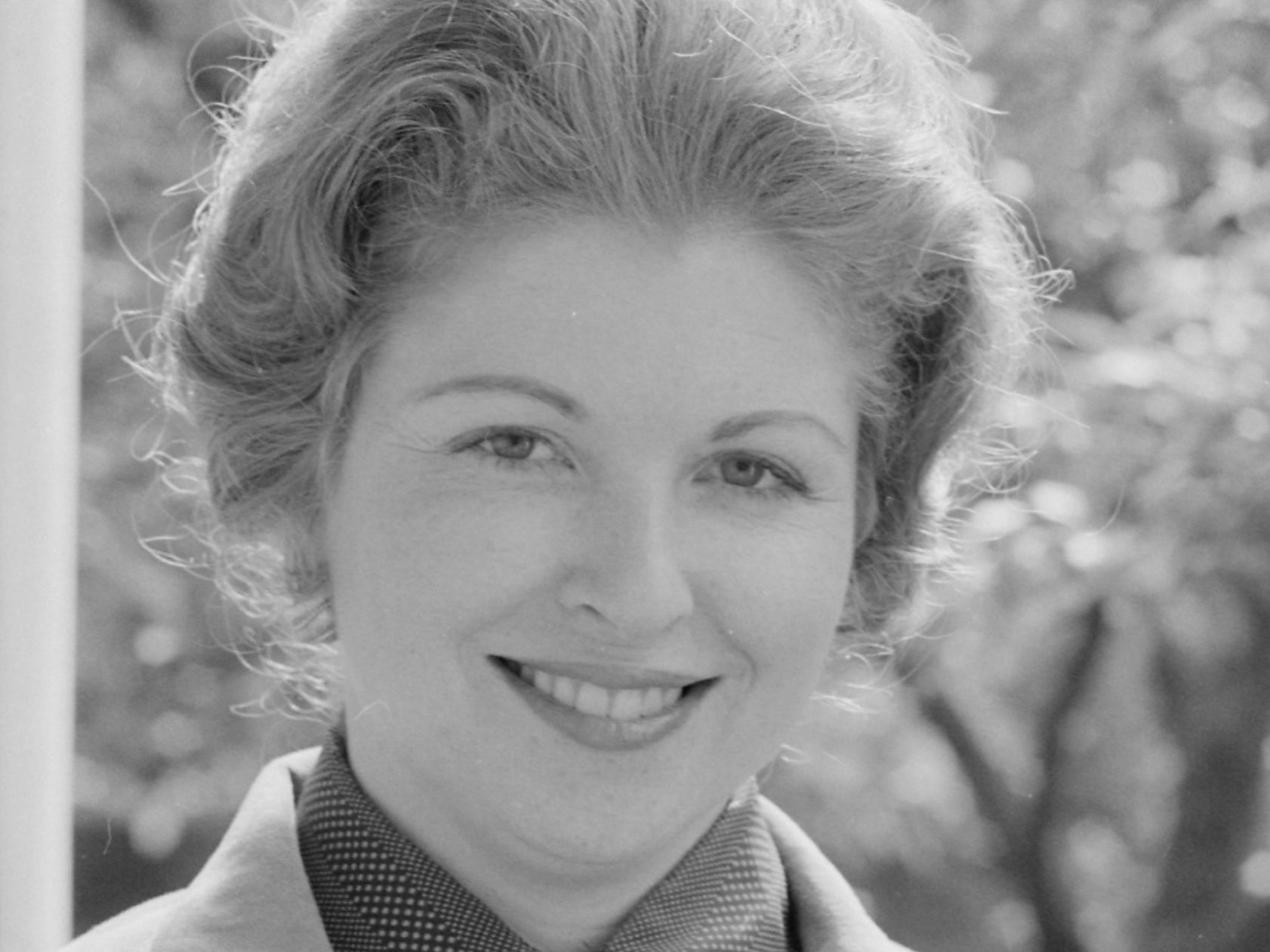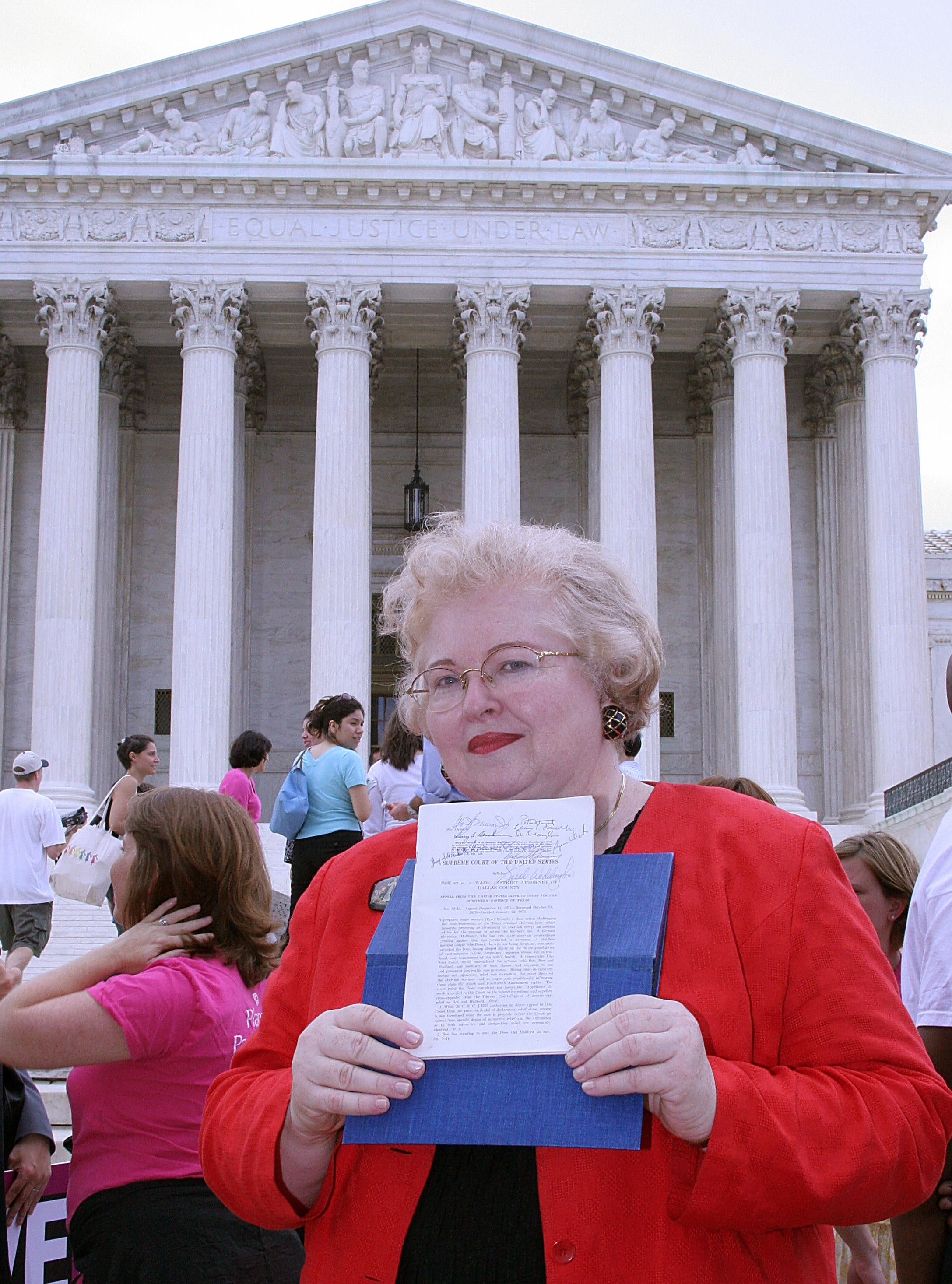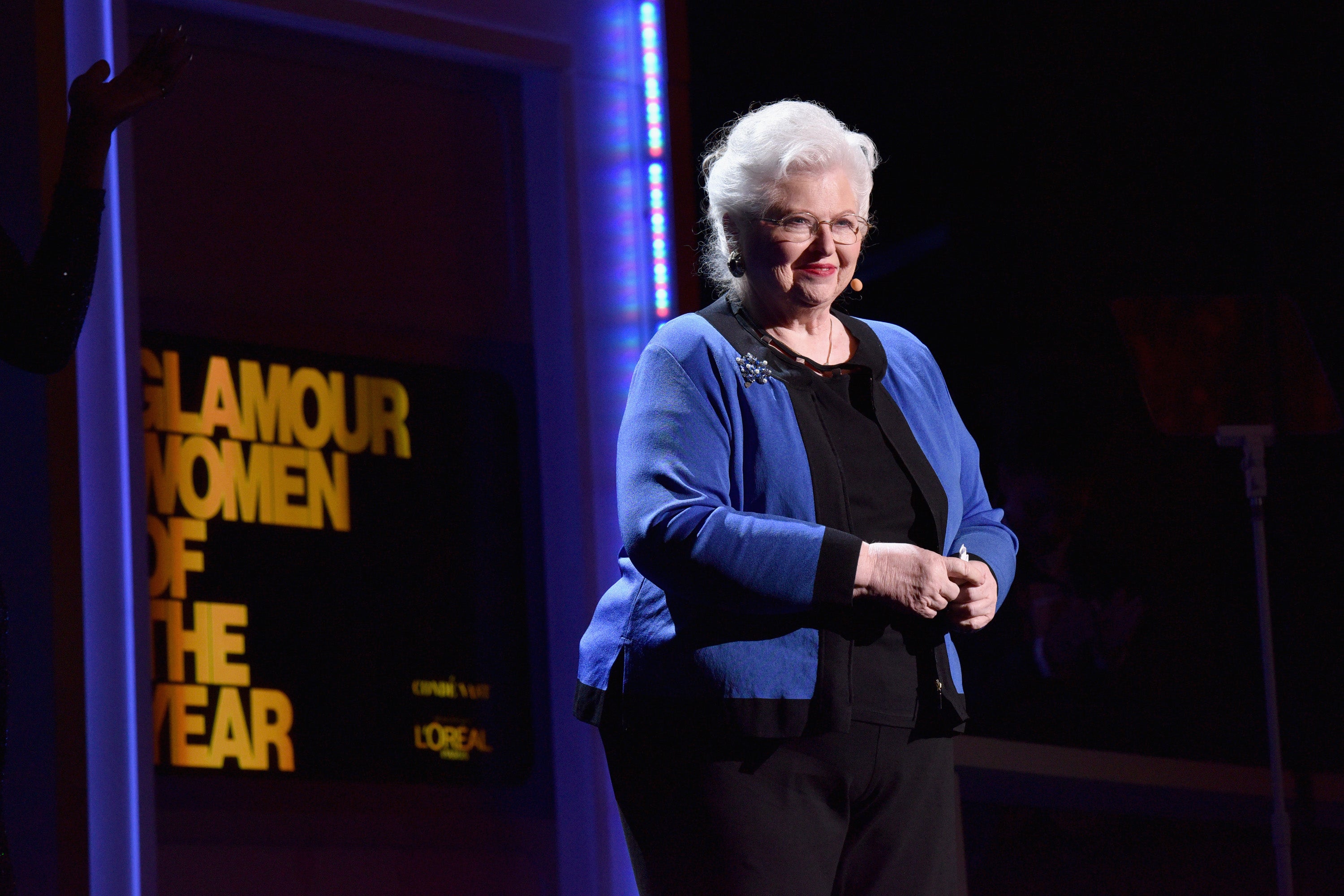Sarah Weddington: The lawyer who claimed victory in Roe v Wade
Weddington used her talent to successfully argue for women’s right to an abortion during the landmark case

Sarah Weddington, who as a young Texas lawyer appeared before the US Supreme Court to successfully argue Roe v Wade, the landmark 1973 case that established a constitutional right to an abortion and touched off one of the fiercest battles of the American culture wars, has died aged 76.
Weddington was just shy of her 25th birthday when Linda Coffee, a fellow recent graduate of the University of Texas at Austin law school, invited her in January 1970 to help challenge the state’s ban on all abortions other than those performed to save the life of the mother. The law at the time was largely the same in most other states, leading many women to undergo illegal and often unsafe backstreet abortions or to attempt to perform the procedure on themselves.
Like her former classmate, Weddington had only recently begun her legal practice, and by her own account had only dealt with uncontested divorces, wills for people with no money, and an adoption (the last being for her uncle).
But both women were eager to pursue more significant legal work, and in particular to use the law to bolster reproductive rights. Although she would not reveal it publicly for several decades, Weddington had travelled to Mexico to obtain an abortion during her last year in law school, and understood intimately the desperation of women carrying unwanted pregnancies. As a young lawyer, she was active with a group in Texas that referred women in need of abortions to safe and reliable providers.
An adoption lawyer introduced Coffee to the woman who became the plaintiff in Roe v Wade. Her name was Norma McCorvey, although she would become better known by the pseudonym she adopted for the lawsuit, Jane Roe. (The defendant in the case was Dallas County district attorney Henry Wade.)
At 22, McCorvey was unwed and burdened by poverty and addiction. She had already endured two pregnancies and did not wish to carry forward a third. Meeting with her at a pizza parlour, the two lawyers set about persuading McCorvey to take her case to court.
Weddington “was wholesome and robust and had things happening!” McCorvey said years later in an interview with Joshua Prager, a journalist who chronicled her story in the recently published book The Family Roe: An American Story. “I fell in love with Sarah,” she said.
Roe v Wade, which Coffee and Weddington filed in the US District Court for the Northern District of Texas, was not the only abortion rights case winding its way through the federal courts at the time. But it became by far the most consequential when it reached the Supreme Court.
Coffee had prepared the original lawsuit, but Weddington argued the case before the Supreme Court justices. Coffee was “brilliant” but “bedraggled”, Prager wrote. Weddington, by contrast, was polished and more comfortable in the spotlight.
“I felt a mix of emotions when I went before the Supreme Court to argue Roe v Wade,” Weddington, who was 26 when she first addressed the justices, told Texas Monthly years later. “I was scared and felt the weight of needing to win for women. I felt reverence for the Supreme Court and what it represented.”
But she was also “aggrieved”, she said.

“I had gone to the lawyers’ lounge ... beforehand to go over my notes,” Weddington recalled. “I found that the lounge had only a men’s room.”
When Weddington initially argued the case, in December 1971, the Supreme Court had two vacancies. Because of the significance of the question at hand, the justices decided that the case should be heard by a full bench. She thus argued it a second time, in October 1972, after the vacancies had been filled.
The 7-2 decision in Roe’s favour, written by Justice Harry Blackmun and handed down on 22 January 1973, was grounded in the concept of due process and what the court had found to be a fundamental right to privacy. The ruling was later modified and has been subject to perennial challenges, including the Mississippi law, currently before the Supreme Court, that prohibits most abortions after 15 weeks of pregnancy. But it had the effect of guaranteeing generations of women the right to an abortion.
McCorvey was not among those women. She delivered her baby two and a half years before the Supreme Court ruled in Roe v Wade, and gave the child up for adoption. She later emerged as an outspoken abortion rights activist, and then, in a dramatic reversal, as a born-again Christian aligned with the anti-abortion cause.
“I’m certainly sorry she gave the opposition a tool to use against the case,” Weddington told The New York Times in 1995, when McCorvey announced her conversion. “But it really doesn’t matter,” she continued. “The case was a class-action suit.”
McCorvey was by all accounts a complicated figure, a victim of abuse and unremitting hardship, who never found full acceptance in either the women's rights movement or the evangelical community. Weddington, for her part, was a “hero” to people who support abortion rights, Prager said in an interview – but “a complicated one”.
Given how far along she was in her pregnancy, it is unclear whether McCorvey could have obtained an abortion when she first met with Weddington and Coffee. But in the later years of her life, McCorvey accused Weddington of failing to even try to help her seek one, and of using her as a tool to win a broader victory in the women’s rights movement.
“Sarah sat right across the table from me at Columbo’s pizza parlour, and I didn’t know until two years ago that she had had an abortion herself,” McCorvey told The New York Times in 1994. “When I told her then how desperately I needed one, she could have told me where to go for it. But she wouldn’t because she needed me to be pregnant for her case.
“I set Sarah Weddington up on a pedestal like a rose petal,” McCorvey continued. “But when it came to my turn, well. Sarah saw these cuts on my wrists, my swollen eyes from crying, the miserable person sitting across from her, and she knew she had a patsy. She knew I wouldn’t go outside of the realm of her and Linda. I was too scared. It was one of the most hideous times of my life.”
When McCorvey died in 2017, Weddington expressed bitterness towards her former client and what she described as McCorvey’s tendency to lie. Reflecting on Roe v Wade and the plaintiff who had made the case possible, Weddington told the Houston Chronicle that “it would have been nice if I’d picked somebody else”.

Sarah Catherine Ragle was born in Abilene, Texas, on 5 February 1945, the daughter of a Methodist minister. She graduated early from high school and, at 19, received a bachelor’s degree in English from what is now McMurry University in Abilene.
Weddington briefly tried teaching, but was unfulfilled, she often said, trying to make teenagers appreciate Beowulf. She then enrolled in law school – after a dean told her that it would be too difficult for a woman – and graduated in 1967, one of only a few female students in her class.
Weddington revealed the abortion she had undergone during law school in a 1992 memoir, A Question of Choice.
“I was not as sophisticated as I should have been about preventing pregnancy,” she told Texas Monthly in 2003. “I was seriously dating the man I later married, Ron Weddington, but I was determined to finish law school, and I wanted to put Ron through law school. There were a lot of considerations.”
Weddington wrote in her memoir that her final thoughts before the anaesthetic took hold were “I hope I don’t die, and I pray that no one ever finds out about this.”
Weddington, who was later divorced, established a law practice in Austin. While pursuing the Roe case, she ran for the Texas House of Representatives and was elected to the first of three terms in 1972. In the legislature, she was credited with pressing for laws to protect the rights of rape victims and of women seeking independent loans and credit.
In 1977, Weddington became general counsel of the US Agriculture Department. The next year, the president at the time, Jimmy Carter, named her a special adviser on women’s issues, a role in which she sought to advance the proposed Equal Rights Amendment.
She taught for many years at the University of Texas at Austin and at Texas Woman’s University, and appeared frequently on the lecture circuit, speaking about women’s rights and her role in Roe v Wade. She said that she received substantial hate mail, and that she sometimes had to be accompanied by security.
Her only immediate survivor is a brother.
In interviews over the years, Weddington referred with some frequency to her future obituary, and to the certainty that it would hinge on the momentous legal victory she had achieved in her twenties.
Once, according to Prager’s book, she confided to an interviewer that in “the momentary hush before she argued Roe v Wade in the Supreme Court”, before she began expounding on matters of due process and constitutionality, her mind turned to the abortion she had undergone just a few years earlier, as a young woman on the cusp of her career.
Sarah Weddington, lawyer and House of Representatives member, born 5 February 1945, died 26 December 2021
© The Washington Post


Join our commenting forum
Join thought-provoking conversations, follow other Independent readers and see their replies
Comments